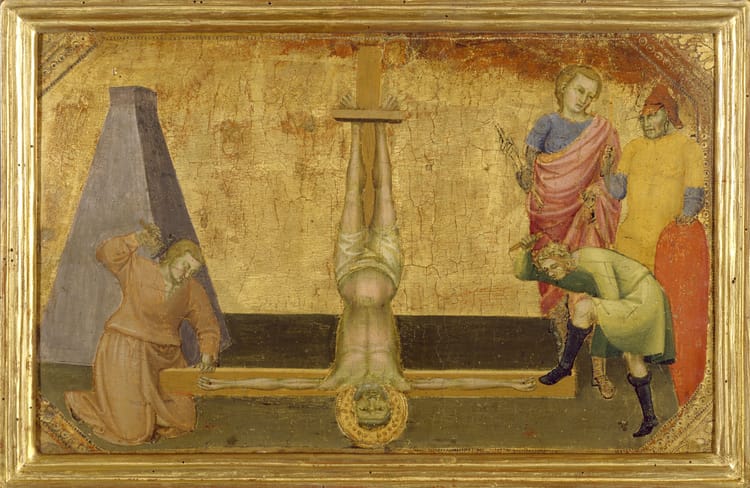Please: Don’t Break Sheep’s Legs

I was recently reminded of a sermon illustration that gets shared by preachers of a particular sort. It goes something like this:
Sheep are known to be stupid and wander off. A shepherd's job is to go and find the sheep and bring it back to fold. Over and over again if need be. However, the Bible teaches that sometimes a sheep is so idiotic and stubborn that the shepherd has a responsibility to lovingly break the sheep's legs to keep it from wandering away again. The sheep—its legs snapped by the shepherd—must now stick close to the shepherd and utterly depend on it. And, having learned its lesson, it will never wander away again.
The moral of the story is that God, as the good shepherd, must sometimes metaphorically (or not) break our legs—maybe through illness, losing our job, a car accident—to teach us dependence on God. Sometimes these preachers will go so far as to say that they too—as fellow shepherds of God's flock—have the responsibility to break the legs of their flock to teach them holy obedience to God's will.
This, friends, is pure and utter nonsense. In fact, you know what? Nonsense would be a relief compared to this rubbish. This is a theology of spiritual abuse.
A few things to note:
- This is found absolutely nowhere in Scripture. You will not find any biblical references to shepherds breaking sheep's legs to teach them obedience.
- This is also not found in history, archeology, or any other research that would unearth such a thing. Shepherds simply can't afford a sheep with broken legs to drag from field to field. Maybe one demented shepherd thought that was a good idea once in history, but they were most definitely voted out of the shepherds guild immediately after.
- Even if this were found to be Something That Definitely Happened, it certainly doesn't mean it's the way God treats us or the way pastors should treat congregations.
Shepherding is indeed the overarching metaphor of leadership in the Hebrew Bible and Christian Scriptures. Biblical authors applied the metaphor to kings, priests, and eventually to the leaders of Christian gatherings.
Ezekiel 34 is the prime biblical example. You should go and read it and then compare it to every leader you've ever known (including you: you're a leader, too). God speaks to the shepherds of Israel (i.e., the kings, rulers, priests, and elite) and calls 👏🏻 them 👏🏻 out 👏🏻. I'll break it into some bullet points for us.
What The Bad Shepherds Have Done
- You tended to yourselves!
- You drink the milk,
- You wear the wool,
- and you slaughter the fat animals
- You don't tend the flock
- You don't strengthen the weak,
- or heal the sick,
- or bind up the injured,
- or bring back the strays,
- or seek out the lost;
- You use force to rule them with injustice.
In short, these bad shepherds neglected, abused, and used the flock. God even explicitly rejects the use of force.
What A Good Shepherd Will Do
This is what God says They will do as a new kind of shepherd:
- I myself will search for my flock and seek them out.
- I will rescue them from all the places where they were scattered during the time of clouds and thick darkness.
- I will gather and lead them out from the countries and people
- I will bring them to their own fertile land.
- I will feed them in good pasture
- They will lie down in a secure fold and feed on green pastures.
- I myself will feed my flock and make them lie down.
- I will seek out the lost,
- bring back the strays,
- bind up the wounded,
- and strengthen the weak.
- But I will destroy the rich and the strong because I will feed my sheep with justice.
Notice the emphasis on "I myself." God isn't dolling out responsibilities to middle management. The actual divine Person will be the one taking care of the feeding, the seeking, the caring. If there is any harshness, it is towards the "rich and strong" (probably the unjust shepherds), not the ones who wander off.
This then informs how we should read, for instance, 1 Peter 5:
So as your fellow elder and a witness of Christ's sufferings and as one who shares in the glory that will be revealed, I urge the elders among you: Give a shepherd's care to God's flock among you, exercising oversight not merely as a duty but willingly under God's direction, not for shameful profit but eagerly. 3 And do not lord it over those entrusted to you, but be examples to the flock. 4 Then, when the Chief Shepherd appears, you will receive the crown of glory that never fades away.
This should inform a congregation member of what to expect from their pastors. And this should inform every pastor of how to behave towards their congregations.
Any mentality that thinks breaking a sheep's legs is proper behavior is clearly far, far off from Ezekiel 34 and 1 Peter 5.






Member discussion